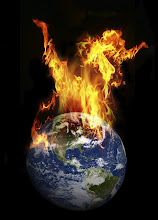
Fire is as ancient as the World itself and for millions of years it has been a major evolutionary force, shaping the biodiversity and landscapes of Earth. Scientists estimate that a total area, comparable to half the size of China, burns around the world every year. At any moment, somewhere on Earth, vast expanses of forests, woodlands, shrublands, savannas, grasslands, tundra, deserts, wetlands and agricultural fields are burning. Fires affect the land and ecosystems on every continent except Antarctica.
Whether ignited by natural causes, like lightning, or set intentionally/accidentally by people, fires are very common. Depending on where and how they burn, fires can affect people and ecosystems in harmful or beneficial ways. For many millennia, human civilizations have benefitted from fire. It has enabled civilizations to grow crops, manage vegetation, hunt more productively and cook their food, along with many other uses such as heating. Although fire has proven itself to be a very beneficial resource, it still remains a destructive force that threatens the health and livelihood of humans and other species alike.1
With regards to ecosystems consisting mainly of plants and animals species that lack any adaptations to withstand or take advantage of fire, its wrath can be devastating. On the other hand, naturally occurring fires, or ignited fires that accentuate natural fire cycles, can be beneficial to ecosystems that have evolved with fire. From an ecological perspective, fires that occur as part of an ecosystems fire cycle are very important and life-sustaining.
According to the Nature Conservancy, ecologists believe that the natural fire cycles have been severely disturbed and fires are behaving differently now than at any other time. Human activity has been cited as the main disrupting factor of natural fire cycles; more fires occur annually as a result of human-ignition than from lightning and other sources.
“Human-induced global warming and changing patterns of rainfall and drought are likely already influencing the way fires behave in many parts of the world. Coupled with other impacts like landscape fragmentation and the introduction of non-native plants that thrive on fire, ecosystems that have seldom experienced fire are burning. At the same time, in fire-dependent ecosystems that have been exposed to flames for hundreds of thousands of years, scientists believe there are fewer hectares burning now than in the past because people are directly and indirectly excluding fire.”2
Ecologists and conservationists believe that alterations in fire cycles pose a major threat to ecosystem and biodiversity conservation. The importance of fire must be recognized in order to integrate a successful conservation effort. By disrupting the natural fire cycles of ecosystems, the potential to undo decades of progress in conservation and sustainable development arises.
-1, 2. Fire, Ecosystems and People, Global Fire Initiative, The Nature Conservancy, October 2004

No comments:
Post a Comment